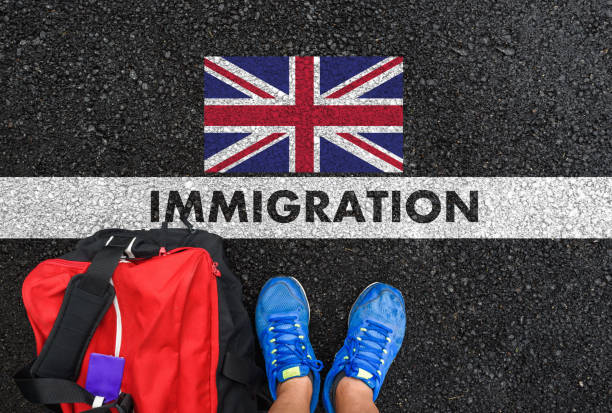How to get the UK Citizenship By Investment
Investing in a country’s economy and infrastructure can get you citizenship – it’s called citizenship by investment or economic citizenship.
Right now, the UK doesn’t have a direct citizenship by investment option. But there are other ways you can consider getting citizenship in the UK and that’s by having the right visa for Investors
This article is aimed at explaining how to get UK citizenship by investment using the right visa.
UK and Possible Routes to British Citizenship
Three types of UK visas could help you become a citizen:

- Investor Visa
- Innovator Visa
- Start-up Visa
Just a heads-up, the Investor Visa, also called the Tier 1 Investment Visa, isn’t open for new applicants.
But if you already have it, you can still apply to extend it. Plus, the time you spend in the UK with this visa can count toward your future ILR application.
#1. The Investors Visa
The Tier 1 Investor visa was a special visa for investing and living in the UK. It closed for new applicants in 2022.
If you’re already on this visa and want to extend it, you must keep living in the UK and maintain your investment.
To qualify, you needed to invest at least £2 million. Investing £5 million or more could get you permanent residence in three years instead of five.
Extending the visa can take up to 8 weeks, but you can speed it up with the priority service, getting a decision in 5 working days or less after your appointment.
However, extension applications can face delays because of complex investment requirements.
You can stay in the UK while renewing your visa, as long as you applied before your current one expires.
Renewing the Investor Visa costs £1,623, plus the NHS surcharge for medical treatment in the UK.
#2. Innovator Visa
The Innovator Visa is made for entrepreneurs. By investing at least £50,000 in a business, you can live in the UK and run your business.
It’s also a path to ILR status, British citizenship, and getting a British passport eventually.
The Innovator Visa is tailored for entrepreneurs who invest a minimum of £50,000 in a business to run it in the UK.
This visa can lead to Indefinite Leave to Remain(ILR), British citizenship, and a British passport.
To qualify for permanent residence via Innovator visa:
- You need a viable business plan.
- You can start your own company or join forces with other investors, each pitching in at least £50,000.
- You must keep this investment for five years to be eligible for ILR.
- To extend your visa after three years and four months, you must maintain a £50,000 investment.
- Actively participating in your business is crucial, taking full responsibility.
- You must employ at least two workers through your business to create job opportunities in the country.
Registering your business with a UK endorsing body is a must. The endorsing body should have a valid license.
If it loses its license, you’ll need to reapply with another government-listed body.
How many time Innovator Visas Can be Extended
The Innovator Visa is initially valid for three years and four months, and you can extend it an unlimited number of times, each time for three years.
Dependents of Innovator Visa holders can also extend their visas for the same duration.
After being in the UK for three years, innovators and their families can apply for permanent residency and, eventually, become British passport holders.
#3. Startup Visa
The Startup Visa is for entrepreneurs starting their first business in the UK, with no investment required.
You need an innovative, viable, and scalable business idea endorsed by a UK-approved endorsing body.
With the Startup Visa, you can stay in the UK for up to two years to build your business.
After two years, you might qualify to switch to the Innovator Visa, which lets you stay in the UK for another three years and is for more seasoned entrepreneurs.
Overview of Becoming UK Citizenship
ILR is a permanent status granted to individuals. But if someone with ILR leaves the UK for two consecutive years, their status can be canceled.
ILR holders can apply for British Citizenship, which comes with benefits like:
- Having a British passport.
- The right to vote in UK elections.
- Being able to stay abroad for any duration while still holding dual citizenship.
Eligibility Criteria for Applying for UK Citizenship
You become eligible for British Citizenship after being a permanent resident for one year.
Within the last five years before your application, you shouldn’t have been outside the UK for more than 450 days, and no more than 90 days in the last year.
Adults must show English proficiency and pass the Life in the UK test. Everyone needs a clean criminal record and administrative record.
You must be at least 18 years old and provide evidence of being in the UK five years before the Home Office gets your application.
You should plan to keep living in the UK and show good character according to the naturalization guidance.
FAQs
#1. How much does a UK Citizenship Application Cost?
Applying for UK citizenship costs £1,330. This fee covers the processing costs, and you’ll also need to provide biometric information, like fingerprints and a photo.
#2. Can I become a UK citizen by buying a house in the UK?
Buying a property in the UK doesn’t automatically grant residency here. Also, there isn’t a visa that gives immediate residency based solely on property ownership (like a UK property visa). Plus, the Tier 1 Investor visa is no longer open to new applicants.
Conclusion
There are two ways to apply for British citizenship by naturalization: you can either apply yourself or use an agent or representative.
Due to COVID-19, it might take longer than the usual 6 months to get a decision, but this won’t affect the outcome.
You’ll have extra time to provide fingerprints, a photo, and additional information, and book a citizenship ceremony.
An agent or representative could be a private company or individual who helps with your application and provides advice.
Make sure they are registered with the Office of the Immigration Services Commissioner (OISC).
You can also use some solicitors or barristers who aren’t registered with the OISC but must be registered with specific organizations instead.










